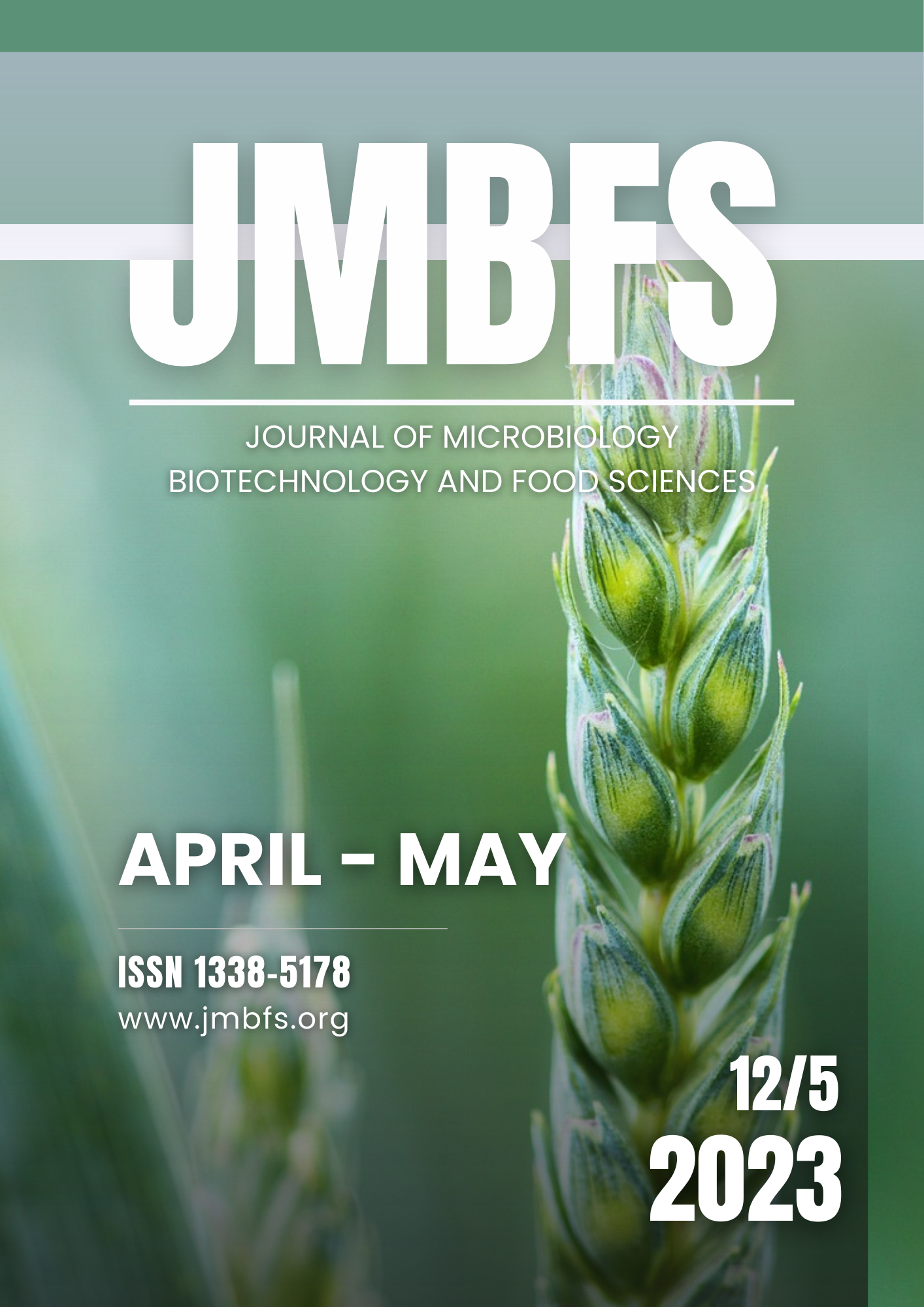ENCAPSULATION OF EUCALYPTUS LEAVES PHYTOPRODUCTS INTO LIPOSOMAL NANOPARTICLES AND STUDY OF THEIR ANTIBACTERIAL ACTIVITY AGAINST STAPHYLOCOCCUS AUREUS IN VIVO
DOI:
https://doi.org/10.55251/jmbfs.9445Keywords:
liposomal drug, eucalyptus oil, chlorophyllipt, antibacterial activity, Staphylococcus aureusAbstract
Plant oils are high effective active pharmaceutical ingredients, but the extremely low bioavailability of lipophilic compounds limits their use in drugs. The encapsulation of essential oils into nanoparticles are actively studied. The aim of the research was to prepare liposomal forms of eucalyptus leaves extract and Chlorophyllipt and to study their antibacterial activity. Liposomal forms of Chlorophyllipt and eucalyptus oil extract was prepared using egg phosphatidylcholine and cholesterol by high pressure homogenization and sonication method. The average particle sizes of liposomal Chlorophyllipt and liposomal eucalyptus extract were 156.5 and 210.4 nm, respectively. Active pharmaceutical ingredient encapsulation in liposomal Chlorophyllipt and liposomal eucalyptus extract were at least 85% and at least 90%, respectively. Antibacterial activity of liposomal drugs was studied in white mice with model of staphylococcal infection, initiated by Staphylococcus aureus ATTC 209. The use of liposomal eucalyptus oil and liposomal Chlorophyllipt demonstrates no toxicity in mice. Both investigated drugs demonstrated antibacterial activity against Staphylococcus aureus in mice. A single administration of the liposomal drugs increased the survival rate up to 30-40% compared with model animals. Double administration of liposomal drugs both in liquid form and in lyophilized form increased the survival rate by at least 70 %. Moreover, in the group of animals treated liposomal eucalyptus oil, the number of surviving animals was 100%, while in a group of liposomal Chlorophyllipt it was 80%.
Downloads
Downloads
Published
How to Cite
Issue
Section
License
Copyright (c) 2022 Yuriy Krasnopolsky, Daria Pylypenko

This work is licensed under a Creative Commons Attribution 4.0 International License.
All papers published in the Journal of Microbiology, Biotechnology and Food Sciences are published under a CC-BY licence (CC-BY 4.0). Published materials can be shared (copy and redistribute the material in any medium or format) and adapted (remix, transform, and build upon the material for any purpose, even commercially) with specifying the author(s).





